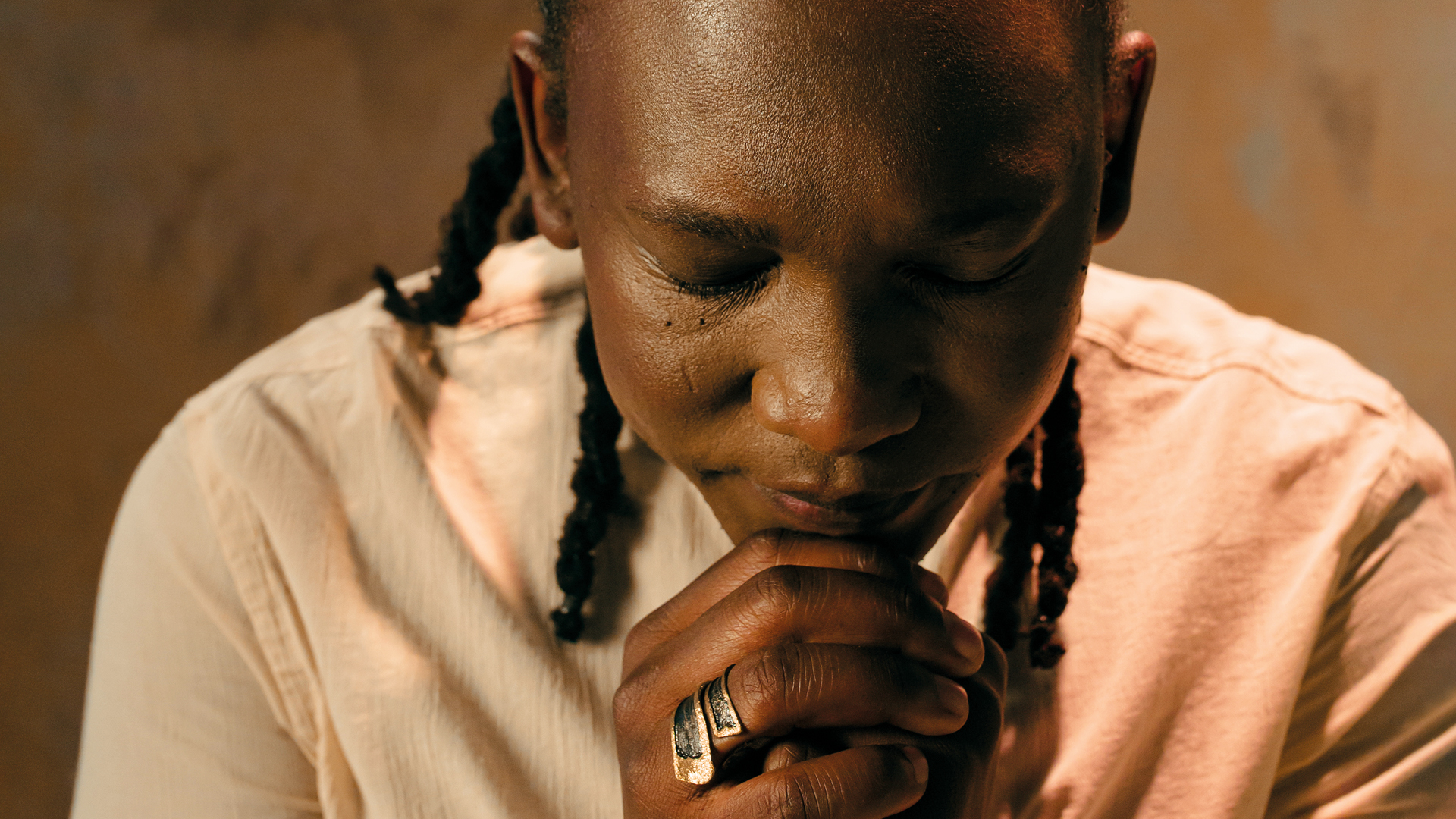I first saw Selaocoe with the BBC Singers at the Barbican, London without knowing who he was – I had never seen the famous Singers before and was intrigued by an evening where “Rachmaninov’s sacred All-Night Vigil meets African musical traditions”. I saw him again the following night supporting the experimental music and poetry of Moor Mother. He was solo, bowing the cello, plucking it like a guitar, and smacking it to imitate drums in various ways.
One of the key things that marks Selaocoe out is his resourcefulness – he expertly moulds himself and his practice to suit the circumstances. He learned this growing up in Sebokeng, a township in South Africa. “It was almost mandatory from our parents’ perspective to dip into other cultures or play with children from other places,” he says. “This creates an opportunity for you and the collaborator to display your differences, but to also display what makes you the same.”
This experience is critical to Selaocoe’s knack for audience participation, his inventive ways of playing the cello, and his ability to play by himself as well as he can with a choir or full orchestra. “Sometimes I would hear somebody say something in Zulu or Sotho that would sound super rhythmic,” he says. “I would try to play the rhythm of the speech and the sentence, and then I’d start making rhythm from that.”
Selaocoe released his latest single, Voices of Bantu, on 6 October. Just as many electronic music and hip-hop producers sample older records for their songs, Selaocoe incorporates Tsohle Tsohle, a South African traditional hymn, and Les Voix Humaines, a piece by 17th century baroque composer
Marin Marais.
When you press play on Voices of Bantu you’ll hear Selaocoe’s piercing voice and solo cello. Again, he switches between bowed, drawn-out chords, playing the instrument like an acoustic guitar and flurrying melodies.
“What was clearly important was this idea of being able to sing,” he says. “The part that I sang in an
African style could also be accompanied by a baroque style. And then I don’t have to do much more to display African culture because I’ve already done the voice that can fit into both worlds. Keeping things simple is also very respectful for the clarity of the two worlds.”
Advertising helps fund Big Issue’s mission to end poverty
I had never heard of Marin Marais before listening to Voices of Bantu, nor do I have much knowledge in South African traditional hymnal music. But the way Abel Selaocoe uses both of these reminds me of Henryk Górecki’s Symphony of Sorrowful Songs, which takes many of its lyrics from Poland’s traditional folk and hymnal music and was one of the last century’s most famous classical compositions.
“To help people understand classical music you have to present it in a different way,” he says.
“If I have to play a Bach fugue, that’s deep and needs a lot of intentional listening. I have to programme that next to other pieces that might make it more digestible. Classical music is incredible within itself, but you need to not make people feel like they needed to go to school for it.
“It’s about being able to tell a story in a great way. It doesn’t only start at the beginning or the middle or the end. It can be absurd. I want to introduce people who love classical music to my culture, African music, but also people who love African music to classical music; and to show them that it is normal to find that connecting.
“That’s a really lovely thing, and an attitude to have towards most things in life.”
Where Is Home (Hae Ke Kae) is out now on Warner Classics.
Advertising helps fund Big Issue’s mission to end poverty
Abel Selaocoe is touring the UK from 30 October to 5 November, and will perform his Four Spirits concerto with the London Symphony Orchestra at the Barbican, London, on 16 November.
Cian Kinsella is a member of Big Issue’s Breakthrough programme.
This article is taken from The Big Issue magazine, which exists to give homeless, long-term unemployed and marginalised people the opportunity to earn an income. To support our work buy a copy!
If you cannot reach your local vendor, you can still click HERE to subscribe to The Big Issue today or give a gift subscription to a friend or family member.
You can also purchase one-off issues from The Big Issue Shop or The Big Issue app, available now from the App Store or Google Play.









